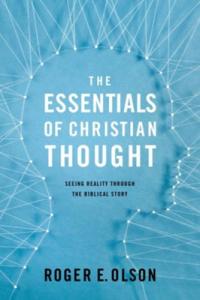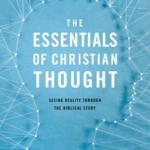Essentials of Christian Thought: Chapter 7: Biblical Christian Humanism
First, let me apologize for not being able to access my blog yesterday. Apparently the server was down or something.
Here I want to continue discussion of my book Essentials of Christian Thought by focusing on Chapter 7: Biblical, Christian Humanism.
For a variety of reasons, many people in America think that “humanism” necessarily means “secular humanism.” I explain some of those reasons in this chapter and argue throughout the chapter that true humanism is Biblical Christian Humanism, not secular humanism. Christian humanism pre-dates secular humanism by hundreds of years. During the Renaissance and Reformation (15th and 16th centuries) many Christian scholars in Europe began promoting a new view of humanity. In my opinion, the best representative of that movement was Christian scholar Erasmus Desiderius also known as Erasmus of Rotterdam.
The essence of Biblical, Christian humanism is that human beings are “essentially good but existentially estranged, to borrow a phrase from 20th century theologian Paul Tillich.
Secular humanism, I argue, cannot explain why humans are special, possessing essential and special dignity and worth among all other creatures. It asserts it, but doesn’t explain it.
In the Interlude following Chapter 7 (Interlude 7) I diverge from the main point into a discussion of “freedom.” I argue that compatibilism, the belief that free will is compatible with determinism, is mistaken even if many Christians have adopted it. “True freedom” is, I claim, being what one was made for—life in the image and likeness of God. Free will is a God-given tool, as it were, for choosing true freedom or not. The human being can use his or her free will to go either way—toward true freedom in relationship with God, having the image and likeness of God restored, or away from true freedom, continuing in a life where the image and likeness of God is broken.
I oppose the denial of the essential goodness of humanity AND the denial of the existential brokenness of humanity. Throughout my career as a Christian theologian I have both denials among students and colleagues and church people. (I have taught theology in numerous churches.)
Years ago I taught a course in Christian apologetics. We began the course by reading secular humanist Paul Kurtz’s book In Defense of Secular Humanism. Then I invited the president of the state’s humanist society to come to my class to speak about secular humanism. After he talked I asked him if he was aware of Christian humanism. He expressed doubt that there could be such a thing and argued that the phrase itself is an oxymoron. I responded, kindly, that in my opinion, secular humanism is an oxymoron because secularism cannot explain WHY human beings have special dignity and rights—above other species.
Back then, in the 1980s and 1990s, there was much debate and controversy over secular humanism’s influence especially I public schools (in the U.S.). Some conservative Christian influencers were arguing vehemently that it was shaping the curricula and teachings in many public schools. Some of my colleagues in that Christian liberal arts college argued that this was a fundamentalist myth intended to undermine public education and promote home schooling and private Christians schools competing with public schools. I found myself somewhat caught in the middle. My children went to public schools and, for the most part, I saw no problems. However, when I read some of the textbooks they brought home, I was appalled at how secularized, cleansed of serious discussion of religion, especially Christianity, they were. For example, one required textbook contained an entire chapter on the Civil Rights Movement and Rev. Martin Luther King, Jr. But never mentioned any religious influence on either of them. The book also failed to mention any religious influence on the abolition of slavery movement. Throughout the book there was much information and discussion about Buddhism and Hinduism and Islam and the Enlightenment and the scientific revolutions, but hardly any mention of Christianity.
I concluded that secular humanism was subtly influencing public education in America but that many conservative Christians were wrong to abandon the public schools. Better to get elected to school boards and change the public schools, not to enforce Christianity on anyone but to give Christianity a fair hearing, which was not happening.
*Note: If you choose to comment, make sure you have read Chapter 7 and Interlude 7. If you haven’t, you may ask a question. In any case, make sure your comment or question is no longer than 100 words, on topic, addressed to me, civil and respectful, and devoid of pictures or links.*














